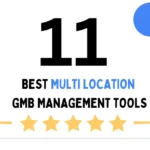Imagine scrolling through your feed. Amidst the usual chaos, a name stops you cold: Gorlock the Destroyer. It sounds like the final boss in an epic video game, a creature of myth and pixelated fury. But in April 2023, this fantastical title landed squarely on the shoulders of a real person: blogger and content creator Ali C. Lopez. What started as a fleeting, humorous comment after her appearance on the popular “BFFs” podcast didn’t fade into obscurity. Instead, Gorlock the Destroyer detonated across the internet, transforming from a potential jab into a roaring symbol of self-love, body positivity, and the sheer power of owning your narrative. This is the story of how a meme met its match in unshakeable confidence.
The Spark: Where Did “Gorlock the Destroyer” Come From?
Every viral phenomenon needs an origin story. For Gorlock the Destroyer, it began on April 26, 2023. Ali C. Lopez appeared on the “BFFs with Dave Portnoy, Josh Richards & Brianna Chickenfry” podcast. Like many guests in the digital spotlight, her appearance became fodder for online commentary. One social media user, likely inspired by Lopez’s striking presence and perhaps drawing a playful (if exaggerated) comparison to formidable video game antagonists, dubbed her “Gorlock the Destroyer.”
The name itself is pure internet alchemy:
- “Gorlock”: Evokes images of mythical, powerful creatures (think Godzilla meets a Tolkien orc, or perhaps a forgotten Dungeons & Dragons beast).
- “The Destroyer”: Amplifies the sense of unstoppable force, a title often reserved for ultimate villains or powerful entities.
It was absurd, hyperbolic, and instantly meme-worthy. The imagery clicked perfectly with online gaming and fantasy culture.
Going Viral: Meme Culture Embraces the Destroyer
The internet moves fast. The Gorlock the Destroyer moniker didn’t linger in obscurity. It spread like digital wildfire, particularly thriving on platforms built for rapid sharing and remix culture:
- TikTok: Short videos featuring Lopez’s podcast clips overlaid with the name, epic boss battle music (think Skyrim or Dark Souls themes), and fantastical text graphics proliferated. Creators leaned into the gaming analogy hard.
- Reddit: Communities like r/TikTokCringe, r/ContagiousLaughter, and niche meme subreddits became hubs for sharing and discussing the Gorlock the Destroyer phenomenon. Threads dissected the origin, debated the intent, and amplified the absurdity.
- Twitter/X: The name trended, with users creating fan art (often depicting Lopez as a literal video game boss), humorous takes, and heated discussions about online culture and body shaming.
The meme ecosystem did what it does best: it took a kernel of an idea and exploded it into a thousand different iterations. Gorlock the Destroyer became less about the specific person and more about the idea – a symbol of exaggerated, formidable presence playfully plucked from fantasy and dropped into reality.
The Viral Pathway of Gorlock the Destroyer
| Platform | Primary Content Type | How the Meme Manifested | Key Drivers |
|---|---|---|---|
| Origin | Podcast Commentary | Initial nickname creation in social media comments | Humor, Exaggeration, Gaming Culture Reference |
| TikTok | Short Videos | Clips + Epic Music + “Boss Fight” Text/Graphics | Remix Culture, Sound Trends, Visual Humor |
| Threads & Image Posts | Discussion, Debate, Fan Art, Compilations | Community Sharing, Niche Subreddits, “Inside Joke” Amplification | |
| Twitter/X | Tweets & Trending Topics | Fan Art, Hot Takes, Cultural Commentary, Hashtags | Real-time Conversation, Virality Loops, Influencer Engagement |
The Masterstroke: Ali Lopez Embraces Gorlock
This is where the story takes its most powerful turn. Faced with a viral nickname that could easily be interpreted as mocking or body-shaming (given its origin in commenting on her appearance), Ali C. Lopez had a choice: retreat in embarrassment or lean in with defiance. She chose the latter, spectacularly.
Instead of shrinking from the spotlight or demanding the meme die, Lopez embraced Gorlock the Destroyer. She:
- Adopted the Name: She began using “Gorlock the Destroyer” in her own social media bios and content.
- Reclaimed the Narrative: Lopez framed the name as a symbol of strength, power, and unapologetic selfhood. She owned the “Destroyer” aspect, transforming it from a potential insult into a badge of honor representing her confidence and resilience.
- Championed Body Positivity: By confidently owning a name born from commentary on her appearance, Lopez sent a powerful message of body acceptance and self-love. She refused to be defined by others’ potentially negative perceptions.
- Engaged with the Humor: She demonstrated self-awareness and a sense of humor about the situation, understanding the meme’s absurdity while harnessing its power for positivity.
This wasn’t just damage control; it was a strategic and authentic reclamation. Lopez didn’t just tolerate Gorlock the Destroyer; she weaponized it for empowerment.
Also Read: Remembering Quintin Conway: A Life of Enterprise and Service – Quintin Conway Obituary
Beyond the Meme: Gorlock as a Symbol of Empowerment
Lopez’s embrace of Gorlock the Destroyer resonated far beyond the initial laugh. It tapped into deeper cultural currents:
- Reclaiming Language: It became a textbook example of how marginalized groups or individuals can take potentially harmful labels or stereotypes and redefine them on their own terms, stripping them of negative power. Think of the LGBTQ+ community reclaiming “queer” or movements reclaiming slurs.
- Body Positivity in the Firing Line: The internet, especially social media, is often a harsh place for bodies that don’t conform to narrow standards. Lopez’s unflinching confidence in the face of a viral phenomenon directly tied to her appearance became a powerful beacon in the body positivity movement. It shouted: “I am here, I am powerful, and your labels don’t define me.”
- The Power of Owning Your Weird: The name “Gorlock the Destroyer” is inherently ridiculous. Lopez’s embrace of it celebrated individuality and the courage to be different, even if it invites commentary. It encouraged others to own their unique traits unapologetically.
- Resilience Against Online Negativity: In an age of relentless online scrutiny and cruelty, Lopez’s response offered a blueprint: radical self-acceptance and humor can be potent shields. She refused to be a victim of the meme; she became its commander.
Gorlock the Destroyer stopped being just a funny internet moment. Under Lopez’s stewardship, it evolved into a cultural touchstone representing the defiance of societal expectations and the celebration of authentic self.
Lessons from the Destroyer: Turning Digital Shade into Strength
The saga of Gorlock the Destroyer offers valuable takeaways, whether you’re navigating online life or personal challenges:
- You Control Your Narrative: People will label you, categorize you, and sometimes mock you. The power lies in how you choose to define yourself. Lopez showed that embracing the label on your own terms robs it of its negative sting.
- Confidence is Your Armor: Unapologetic self-confidence is transformative. Walking through the world owning who you are, as Lopez did with Gorlock, disarms negativity and inspires others.
- Humor is a Superpower: Finding the absurdity in difficult situations, even those targeting you, can be incredibly freeing and disarming. Lopez didn’t take the meme deadly seriously; she joined the fun, but on her own empowered terms.
- Community Finds Strength in Shared Symbols: The Gorlock phenomenon showed how a shared symbol, even an absurd one, can foster a sense of community and shared understanding around themes of resilience and self-acceptance.
- The Internet Giveth and Taketh Away, But You Steer: Virality is unpredictable. What starts as a joke can become something much bigger. Lopez demonstrated the importance of steering your own ship when the viral winds blow, rather than being capsized by them.
The Legacy of Gorlock: More Than Just a Meme
While internet memes often have the lifespan of a mayfly, Gorlock the Destroyer endures because of its unexpected depth. It’s a case study in digital culture, a masterclass in personal branding under fire, and a potent reminder of the human spirit’s ability to transform mockery into a mantle of power.
Ali C. Lopez, the woman behind the meme, didn’t just survive being dubbed Gorlock the Destroyer; she thrived. She harnessed the viral energy and redirected it towards a message of unwavering self-love and defiance against body shaming. In doing so, she turned a fleeting internet joke into an enduring emblem of empowerment. Gorlock wasn’t destroyed; she was unleashed – a testament to the fact that the most powerful force online, or anywhere, is unapologetic self-possession.
So, the next time life (or the internet) tries to label you something unexpected, remember the power of Gorlock the Destroyer. The choice of how that label defines you? That power is always yours to wield. Own your narrative, embrace your strength, and maybe, just maybe, channel your inner Destroyer.
You May Also Read: When Is 547x-LP83Fill Going to Be Live? The Mystery Behind the Viral Search Term
FAQs
Is “Gorlock the Destroyer” meant to be an insult?
Initially, the nickname originated from a social media comment that was likely intended as humorous exaggeration, potentially tinged with mockery related to appearance. However, its meaning was completely transformed when Ali Lopez embraced it. She reclaimed it as a symbol of strength, confidence, and body positivity. Today, it’s widely recognized as a term of empowerment, thanks to her actions.
Who is Ali C. Lopez?
Ali C. Lopez is a blogger and social media content creator. She gained widespread attention after appearing on the “BFFs” podcast in April 2023, which directly led to the creation of the “Gorlock the Destroyer” meme. She is known for confidently embracing the nickname and using her platform to promote self-love.
Why did the Gorlock meme go viral?
The meme went viral due to its inherent absurdity and strong connection to internet/gaming culture. The name “Gorlock the Destroyer” perfectly evoked imagery of epic video game bosses. This made it highly meme-able, easily adaptable to formats like TikTok videos with dramatic music and graphics, allowing it to spread rapidly across platforms like Reddit and Twitter/X.
How did Ali Lopez respond to becoming Gorlock?
Ali Lopez responded with remarkable confidence and strategy. Instead of rejecting or being upset by the nickname, she fully embraced it. She added it to her social media bios, used it in her content, and reframed it as a symbol of personal power and unapologetic self-acceptance. This proactive reclamation turned the narrative around.
What does Gorlock represent now?
Beyond the initial meme, Gorlock the Destroyer now represents body positivity, the power of reclaiming language and labels, unapologetic confidence, and resilience in the face of online negativity. It’s a symbol of owning one’s identity and transforming potential mockery into a source of strength.
Was Gorlock a real mythical creature?
No, “Gorlock” doesn’t appear to originate from any established mythology, folklore, or major fantasy franchise (like Tolkien or Dungeons & Dragons). It seems to be an invented name, likely cobbled together to sound powerful and monstrous, fitting the “final boss” archetype prevalent in gaming culture.
What’s the main lesson from the Gorlock phenomenon?
The core lesson is the immense power of self-definition and confidence. Lopez demonstrated that you have the ultimate authority over how labels define you. By embracing “Gorlock the Destroyer” with humor and strength, she transformed a potentially negative situation into a powerful statement of self-love and empowerment, inspiring others to own their narratives.










